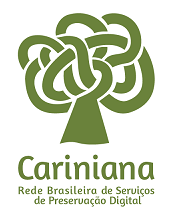City's history, historical consciousness and high school students: the case of Curitiba
DOI:
https://doi.org/10.5433/1984-3356.2011v4n7p363Keywords:
History education, Historical consciousness, Educated youthAbstract
The article has as its theme the relationship between the city's history, the historical consciousness of young educated and the formation of identities concerning the city of Curitiba-Pr. The purpose of this investigation was to examine how the historical consciousness of young educated who live in Curitiba express their identities in relation to the city of Curitiba. The study fits into the scientific field of History Education, as our attention turns to the systematic knowledge of the historical ideas of students and teachers, referenced mainly by the Jörn Rüsen theory of history, particularly the idea of historical consciousness, which according to this author articulates the past as experience and present and future as fields of action oriented by the past, and has the essential functions the temporal orientation and the creation of individual and collective identities.Downloads
Download data is not yet available.
References
ANGVIK, M.; BORRIES, B. Youth and history: a comparative European survey on historical and political attitudes among adolescents. Hamburg: Korber Foundation, 1997. v. A, B.
BARCA, Isabel. Educação histórica: pesquisar o terreno, favorecer a mudança. SCHMIDT, Maria A.; BARCA, Isabel (org.) Aprender história: perspectivas da educação histórica. Ijuí: Ed. Unijuí, 2009.
BARCA, Isabel. Educação histórica: uma nova área de investigação? In: ENCONTRO NACIONAL DE PESQUISADORES DE ENSINO DE HISTÓRIA, 6., 2005, Londrina. Anais[...] Londrina: Atrito Art, 2005. p. 15-25.
BARCA, Isabel. Marcos de consciência histórica de jovens portugueses. Currículo sem fronteiras, Porto Alegre, v. 7, n. 1, p. 115-126, jan./jun., 2007.
BITTENCOURT, Circe M. F. Propostas curriculares de história: continuidade é transformações. In: BARRETO, E. (org.) Os currículos do ensino fundamental para as escolas brasileiras. São Paulo: Autores associados, 1998.
BRASIL. Secretária de Educação Fundamental. Parâmetros Curriculares Nacionais: história e geografia. Rio de Janeiro: DP&A, 2000.
CHEVALLARD, Yves. La transposición didáctica: del saber sabio al saber a ser ensinado. Argentina: Aique, 1997.
FERREIRA, Valéria M. R. Tecendo uma cidade modelar: relações entre currículo, educação escolar e projeto da cidade de Curitiba na década de 1990. 2008. 261 f. Tese (Doutorado em Educação) - Programa de Estudos Pós-Graduados em Educação: História, Política, Sociedade, Pontifícia Universidade Católica de São Paulo, São Paulo, 2008.
GARCIA, F. E. S. Cidade espetáculo: política, planejamento e city marketing. Curitiba: Palavra, 1997.
HALL, Stuart. A identidade cultural na pós-modernidade. Rio de Janeiro: DP&A, 2005.
JUNG, H.; STAHER, G. Didáctica de la história y enseñanza de la historia em la Alemania unificada. Revista Conciencia social. Madrid, n. 2, p. 133-148, 1998.
MARTUCCELLI, Danilo. Gramáticas del individuo. Traducido de José Federico Delos. Buenos Aires: Losada, 2007.
OLIVEIRA, Dennison de. Curitiba e o mito da cidade modelo. Curitiba: Ed da UFPR, 2000.
OLIVEIRA, Márcio de. A trajetória do discurso ambiental em Curitiba (1960-2000). Revista de Sociologia Política. Curitiba, n. 16, p. 97-106, jun. 2001.
PAIS, José Machado. A consciência histórica e identidade: os jovens portugueses num contexto europeu. Oeiras: Celta, 1999.
RÃœSEN, Jörn. El desarrollo de la competencia narrativa en el aprendizaje histórico: una hipótesis ontogenética relativa a la conciencia moral. Trad. Silvia Finocchio. Propuesta Educativa, Argentina, n. 7, out. 1992.
RÃœSEN, Jörn. Razão histórica: teoria da história: fundamentos da ciência histórica. Brasília: UnB, 2001.
SCHMIDT, Maria A. Contribuições ao estudo da construção da didática da história como disciplina escolar no Brasil: 1935-1952. In: CONGRESSO LUSO-BRASILEIRO DE HISTÓRIA DA EDUCAÇÃO, 6., 2006, Uberlândia. Anais[...] Uberlândia: UFU, 2006. p. 4100-4109. Disponível em: www.faced.ufu.br/colubhe06/anais/arquivos/eixo6.htm. Acesso em: 27 jan. 2010.
SCHMIDT, Maria A. Jovens brasileiros e europeus: identidade, cultura e ensino de história (1998-2000). Revista Perspectiva, Florianópolis, v. 20, n. Especial, p. 183-208, jul./dez. 2002.
SCHMIDT, Maria A.; GARCIA, Tânia M. F. A formação da consciência histórica de alunos e professores e o cotidiano em aulas de história. Cad. Cedes, Campinas, v. 25, n. 67, p. 297-308, set./dez. 2005.
SCHMIDT, Maria A.; GARCIA, Tânia M. F. Discutindo o currículo "por dentro" contribuições da pesquisa etnográfica. Educar, Curitiba, n. 17, p. 139-149, 2001.
SOUZA, Nelson R. de. Planejamento urbano em Curitiba: saber técnico, classificação dos citadinos e partilha da cidade. Revista Sociologia Política, Curitiba, v. 16, p. 107-122, jun. 2001.
BARCA, Isabel. Educação histórica: pesquisar o terreno, favorecer a mudança. SCHMIDT, Maria A.; BARCA, Isabel (org.) Aprender história: perspectivas da educação histórica. Ijuí: Ed. Unijuí, 2009.
BARCA, Isabel. Educação histórica: uma nova área de investigação? In: ENCONTRO NACIONAL DE PESQUISADORES DE ENSINO DE HISTÓRIA, 6., 2005, Londrina. Anais[...] Londrina: Atrito Art, 2005. p. 15-25.
BARCA, Isabel. Marcos de consciência histórica de jovens portugueses. Currículo sem fronteiras, Porto Alegre, v. 7, n. 1, p. 115-126, jan./jun., 2007.
BITTENCOURT, Circe M. F. Propostas curriculares de história: continuidade é transformações. In: BARRETO, E. (org.) Os currículos do ensino fundamental para as escolas brasileiras. São Paulo: Autores associados, 1998.
BRASIL. Secretária de Educação Fundamental. Parâmetros Curriculares Nacionais: história e geografia. Rio de Janeiro: DP&A, 2000.
CHEVALLARD, Yves. La transposición didáctica: del saber sabio al saber a ser ensinado. Argentina: Aique, 1997.
FERREIRA, Valéria M. R. Tecendo uma cidade modelar: relações entre currículo, educação escolar e projeto da cidade de Curitiba na década de 1990. 2008. 261 f. Tese (Doutorado em Educação) - Programa de Estudos Pós-Graduados em Educação: História, Política, Sociedade, Pontifícia Universidade Católica de São Paulo, São Paulo, 2008.
GARCIA, F. E. S. Cidade espetáculo: política, planejamento e city marketing. Curitiba: Palavra, 1997.
HALL, Stuart. A identidade cultural na pós-modernidade. Rio de Janeiro: DP&A, 2005.
JUNG, H.; STAHER, G. Didáctica de la história y enseñanza de la historia em la Alemania unificada. Revista Conciencia social. Madrid, n. 2, p. 133-148, 1998.
MARTUCCELLI, Danilo. Gramáticas del individuo. Traducido de José Federico Delos. Buenos Aires: Losada, 2007.
OLIVEIRA, Dennison de. Curitiba e o mito da cidade modelo. Curitiba: Ed da UFPR, 2000.
OLIVEIRA, Márcio de. A trajetória do discurso ambiental em Curitiba (1960-2000). Revista de Sociologia Política. Curitiba, n. 16, p. 97-106, jun. 2001.
PAIS, José Machado. A consciência histórica e identidade: os jovens portugueses num contexto europeu. Oeiras: Celta, 1999.
RÃœSEN, Jörn. El desarrollo de la competencia narrativa en el aprendizaje histórico: una hipótesis ontogenética relativa a la conciencia moral. Trad. Silvia Finocchio. Propuesta Educativa, Argentina, n. 7, out. 1992.
RÃœSEN, Jörn. Razão histórica: teoria da história: fundamentos da ciência histórica. Brasília: UnB, 2001.
SCHMIDT, Maria A. Contribuições ao estudo da construção da didática da história como disciplina escolar no Brasil: 1935-1952. In: CONGRESSO LUSO-BRASILEIRO DE HISTÓRIA DA EDUCAÇÃO, 6., 2006, Uberlândia. Anais[...] Uberlândia: UFU, 2006. p. 4100-4109. Disponível em: www.faced.ufu.br/colubhe06/anais/arquivos/eixo6.htm. Acesso em: 27 jan. 2010.
SCHMIDT, Maria A. Jovens brasileiros e europeus: identidade, cultura e ensino de história (1998-2000). Revista Perspectiva, Florianópolis, v. 20, n. Especial, p. 183-208, jul./dez. 2002.
SCHMIDT, Maria A.; GARCIA, Tânia M. F. A formação da consciência histórica de alunos e professores e o cotidiano em aulas de história. Cad. Cedes, Campinas, v. 25, n. 67, p. 297-308, set./dez. 2005.
SCHMIDT, Maria A.; GARCIA, Tânia M. F. Discutindo o currículo "por dentro" contribuições da pesquisa etnográfica. Educar, Curitiba, n. 17, p. 139-149, 2001.
SOUZA, Nelson R. de. Planejamento urbano em Curitiba: saber técnico, classificação dos citadinos e partilha da cidade. Revista Sociologia Política, Curitiba, v. 16, p. 107-122, jun. 2001.
Downloads
Published
2011-10-11
How to Cite
GERMINARI, Geyso. City’s history, historical consciousness and high school students: the case of Curitiba. Antíteses, [S. l.], v. 4, n. 7, p. 363–382, 2011. DOI: 10.5433/1984-3356.2011v4n7p363. Disponível em: https://ojs.uel.br/revistas/uel/index.php/antiteses/article/view/5185. Acesso em: 20 dec. 2025.
Issue
Section
Articles
License
Copyright (c) 2011 Antiteses

This work is licensed under a Creative Commons Attribution 4.0 International License.
The journal reserves the copyright on the contributions published, without material compensation for the author, and may make them available online in Open Access mode, through its own system or other databases; you can also make normative, orthographic and grammatical changes in the originals, in order to maintain the cultured standard of the language, with the final consent of the authors. The opinions expressed by the authors are their sole responsibility.









